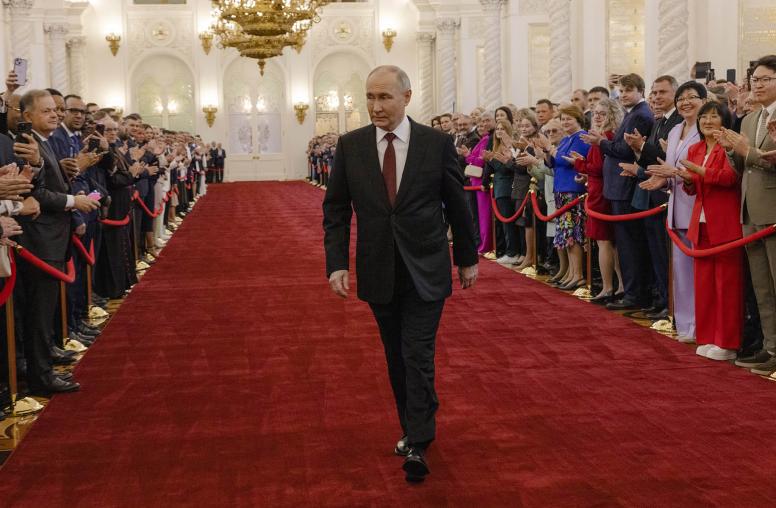Women’s Changing Roles and Leadership During the War in Ukraine
One year in, Russia’s war in Ukraine has led to massive changes in the lives of women across Europe — especially in Ukraine and neighboring countries. This is accelerating women’s presence in military institutions and increasing their participation in humanitarian spaces, civil society and governance.
Ahead of International Women’s Day, USIP, the Romulus T. Weatherman Foundation and Women in International Security hosted a discussion with women from Ukraine and Europe that looks at how the war is impacting gender roles in military, civil society and government institutions.
Continue the conversation on Twitter using #UkraineUSIP.
Speakers
Lise Grande, welcoming remarks
President and CEO, U.S. Institute of Peace
Ariela Blätter, opening remarks
President and CEO, Women in International Security
Meaghan Mobbs, remarks
President, Romulus T. Weatherman Foundation
Tetiana Yehorova-Lutsenko
Chairperson, Kharkiv Regional Council
Tamila Afansieva
Head, Odessa Regional Council for Peace
Solomiia Bobrovska
Member, Parliament of Ukraine; Deputy Head, Ukraine’s Delegation to NATO PA
Olga Rudnieva
Executive Director, Superhumans Rehabilitation Center
Ioana Vlad
Midshipman, United States Naval Academy
Mary Glantz, moderator
Senior Advisor, Russia and Europe Center, U.S. Institute of Peace



